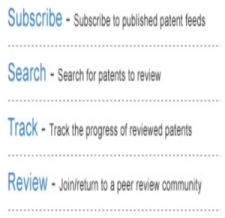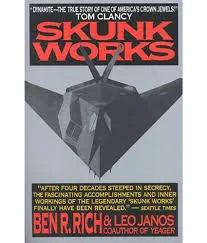I recently wrote here about using social networking and information technology to improve access to expert knowledge within the enterprise. Luis Suarez has also commented about the "knowledge management" aspects of this idea.
An interesting experiment incorporating some of these ideas is already underway here in the United States -- the Peer to Patent Project. One aspect of the project is the role experts will play in the patent review process -- experts who are self-selected and not affiliated with the US Patent and Trademark Office (USPTO).
One of the the basic ideas underlying this IBM supported experiment is to open up the patent review process so that "more eyeballs" have a chance to review and comment on patent applications. A major goal is to thereby reduce the number of unqualified patents that get approved.
The project has been designed from the start as an innovative application of social networking and information technologies to the patent review process. The project's status as of May 2006 is reviewed in a series of presentations that are available on the project's web site; part 1 describes the project's background and part 2 the status of the multiphase prototype experiment that is currently underway. Here is how Professor Beth Noveck describes Phase I:
Phase I: Novelty Determination and Locating Prior Art. Ideally-suited to peer review because it enunciates a clear goal, requires only minimal participation and lends itself to self-selection on the basis of expertise. An expert knows instantly whether an invention is reminiscent of earlier work. Designed right, the software can make participation for a network of scientific and innovation experts clear and easy.
- Create online system to publish patents to expert peer reviewers
- Enable participants to sign up for specific categories of art
- Experts to self-select participation
- Solicit wide array of expert participation
- Allow participants to rate and rank prior art
 The presentation also includes a mockup of the user interface for a prototype system, with major functions including Subscribe, Search, Track, and Review (a portion of the main page of mock-up is shown here).
The presentation also includes a mockup of the user interface for a prototype system, with major functions including Subscribe, Search, Track, and Review (a portion of the main page of mock-up is shown here).
A key difference between the Community Patent Review prototype system and the "expertise management system" I envisioned earlier is that the Patent prototype is a full-fledged information management system; patent applications are digitized, distributed, and reviewers (the self selected "experts") are encouraged to submit information about "prior art" to aid in the determination of an invention's originality.
Another difference (potentially) is that the Community Patent Review system's experts are self selected based on their own interest in and knowledge of the ideas described in the patent application. Finally, the "expertise management system" I envisioned consisted of experts drawn from within an organization; the Peer to Patent project explicitly will be enlisting support of people outside the USPTO, the traditional manager of the patent examination process.
I'll be watching this project with great interest as it proceeds, especially in terms of the way it manages the use of expert knowledge from outside the USPTO. I'll be interested in seeing, for example, what types of feedback on reviewer performance might eventually be fed back into the system. Frequently, web based systems that incorporate social networking concepts include ranking or rating functions that are either based on transaction types or volumes (e.g., the number and type of incoming or outgoing links) or on explicit ratings supplied by users.
How such "expert performance" related measures might be adapted for use in a modified patent examination process -- a process traditionally heavily influenced by legal and administrative processes that usually occur away from the direct view of the public -- could very well be a true experiment in large scale change management!
- Click here to see all my patent related articles.




